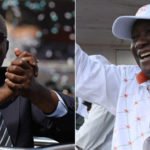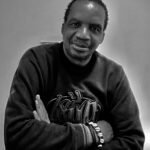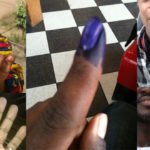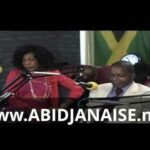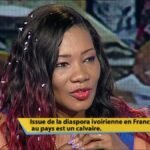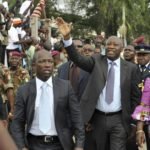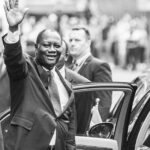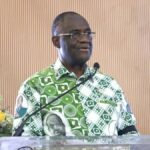Former South African president Thabo Mbeki arrived in Ivory Coast on Sunday to try to mediate an end to a standoff over election results that were meant to resolve a north-south conflict but now threaten to renew it.
Incumbent Laurent Gbagbo was sworn in as president as the world’s top cocoa grower on Saturday even though the electoral commission declared his rival, Alassane Ouattara, winner of a Nov. 28 run-off election.
Ouattara submitted a rival oath to undertake the presidency and said he would start a parallel government.
« A situation like Rwanda or Kenya would be a nightmare, which we are working tirelessly to avoid, » South Africa’s envoy to Ivory Coast, Zodwa Lallie, told Reuters, noting similarities with Kenya’s election in 2007 when a disputed result degenerated into ethnic bloodshed that killed at least 1,300 people.
Mbeki was holding talks with Gbagbo at his presidential palace in the morning and was due later to meet Ouattara at the U.N.-guarded Abidjan hotel he is using as headquarters. South African officials said the Mbeki visit was due to last one day.
The Constitutional Council, the country’s highest legal organ with final word on the election and headed by an ally of Gbagbo, cancelled hundreds of thousands of votes in Ouattara bastions. It cited intimidation and fraud by rebel soldiers who run these areas, and declared Gbagbo the winner.
But the result had been certified by the U.N. peacekeeping envoy to Ivory Coast, Y.J. Choi, who received copies of the count from almost every polling station. He said that even if all the fraud allegations were true, they still could not have changed the outcome announced by the election commission.
The crisis in Ivory Coast, once West Africa’s brightest economic star, has sent cocoa futures up to two-week highs and forced up the risk premium on the country’s $2.3 billion Eurobond. It is currently yielding 11.67 percent, from below 10 percent after the first election round.
The vote was supposed to unite Ivory Coast after a 2002-03 war left the north in rebel hands. but that now seems unlikely.
Small-scale protests and tyre-burning broke out on Saturday in several towns, including the largest city, Abidjan, and in Bouake in the north. At least 15 people have been killed in violence associated with the election.
New Forces rebel commander Cherif Ousmane warned that his followers would « not rest for long without doing something » about Gbagbo if he continues to hold onto power. He did not specify what that would entail.
Gbagbo has controlled the country for a decade but now faces isolation and possibly sanctions, after his win was rejected by the United Nations, United States, France, the European Union, the African Union and West African bloc ECOWAS.
The United Nations has taken the unusually bold step of declaring Ouattara the winner and refusing to recognise Gbagbo.
The International Monetary Fund said on Friday it would not recognise his presidency unless the United Nations did – a factor that could dash hopes for relief of $3 billion in debt.
Gbagbo’s swearing-in was broadcast live on state TV and the head of the armed forces declared his continued allegiance to him the day before. Most diplomats boycotted the ceremony.
The exceptions were diplomats from Angola, a longtime Gbagbo ally, and Lebanon, which has a large expatriate community in Ivory Coast.
After the electoral panel announced provisional results giving Ouattara a win with 54.1 percent of the vote, several foreign broadcast media were taken off the air for their Ivory Coast audiences.







